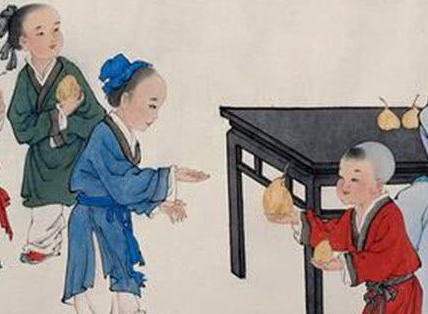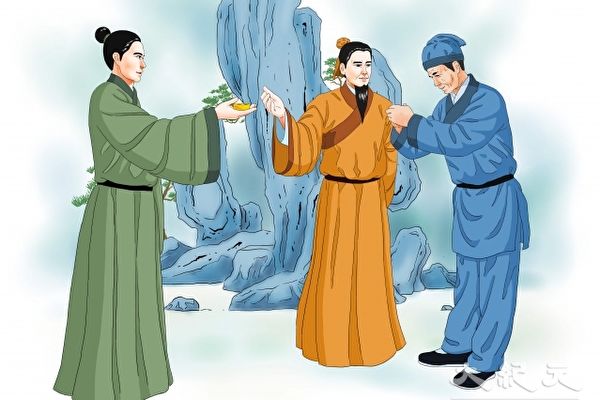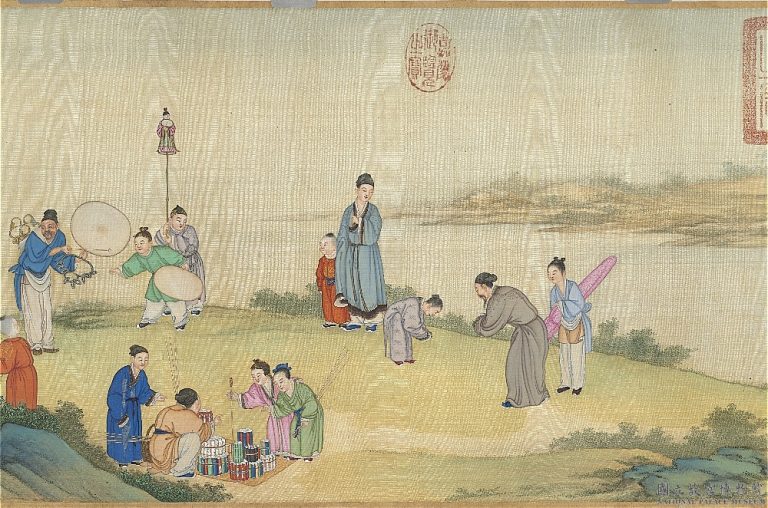The “Standards for Being a Good Student and Child” (Di Zi Gui, 弟子規) is a traditional Chinese textbook for children that teaches morals and proper etiquette. It was written by Li Yuxiu in the Qing Dynasty, during the reign of Emperor Kang Xi (1661-1722). In this series, we present some ancient Chinese stories that exemplify the valuable lessons from the Di Zi Gui. The second chapter of the Di Zi Gui instructs readers to fulfill their duties as siblings and when with their elders.
Read the previous installment here.
It is written in the Di Zi Gui:
兄道友 弟道恭
兄弟睦 孝在中
The older brother shall be friendly
And the young brother respectful
With harmony among older and younger
Filial piety is achieved
Success
You are now signed up for our newsletter
Success
Check your email to complete sign up
財物輕 怨何生
言語忍 憤自泯
Take riches lightly
And there shall be no resentment
Speak with tolerance
And anger will dissipate naturally
Harmony between older and younger siblings is essential for people to learn the value of placing others before themselves. One famous example is Kong Rong, who at the age of four knew to share pears with his older and younger brothers (孔融讓梨).
Kong Rong shares the pears
Kong Rong (153-208 A.D.) lived in the late Han Dynasty, serving as a senior official during the reign of Emperor Ling. Kong was the 20th-generation descendant of Confucius, who lived some 700 years earlier. He was known for his construction of schools and communities, as well as his poetry and essays.
But even as a child Kong Rong was seen as outstanding due to his generosity among his siblings.
Kong Rong was the sixth of seven sons in his family. Once, when he was four, he and his brothers were given a basket of pears as a treat. Being the youngest at the time, Kong’s father allowed him to pick the first pear.

However, instead of choosing the largest, Kong Rong found and ate the smallest of the pears, leaving the bigger pears for the rest of his brothers.
Even after his younger brother was born, Kong Rong continued to take the smallest pear. He said:
“My elder brothers should have the bigger pears because they’re older, but my younger brother should also have the bigger pear as it’s my responsibility to take care of my younger brother.” This earned him great praise from his relatives and their friends.
Later in life, Kong Rong was known to be good-tempered and hospitable, and his house was always full of guests.
The prime minister who returned his friend’s gold
According to Confucianism, much of the etiquette among siblings also applies to the proper relationship between friends.
Li Mian (李勉, 717–788), a descendant of the Tang Dynasty imperial line, was a general who later served as chancellor to Tang Emperor Dezong. Li was poor in his youth, but despite this hardship he never touched wealth that was not his. For this he would be posthumously honored with the title zhen jian (真簡), meaning “pure and simple.”
Instead of pursuing money, Li Mian sought knowledge and wisdom from books. He even befriended another aspiring scholar, who came from a rich family and was on his way to taking the imperial exams in the capital.
Sadly, the scholar came down with a serious illness. Li cared for him, treating him as though he were his own brother. Before succumbing to the disease, the scholar begged Li to accept a sum of gold that was left over after paying for his funeral arrangements. Though he did not want to take the money, he could not refuse his friend’s dying wish, and agreed.

After his friend’s death, Li buried the gold with him in the grave. Years later, when meeting a relative of the late scholar, he informed him of the matter, and the family retrieved the gold.
Li Mian served as an official for two decades. Though the area he governed as a military commissioner was full of merchants from far and near, he didn’t accept bribes or embezzle funds. Li gave away all the money he didn’t need to sustain himself to his relatives and subordinates.
When his relatives received rhino horns and ivory from merchants trying to curry favor with the family, Li would throw them away. When he passed away, it was discovered he had no savings, truly earning his title of “pure and simple.”
Read the next installment here.












